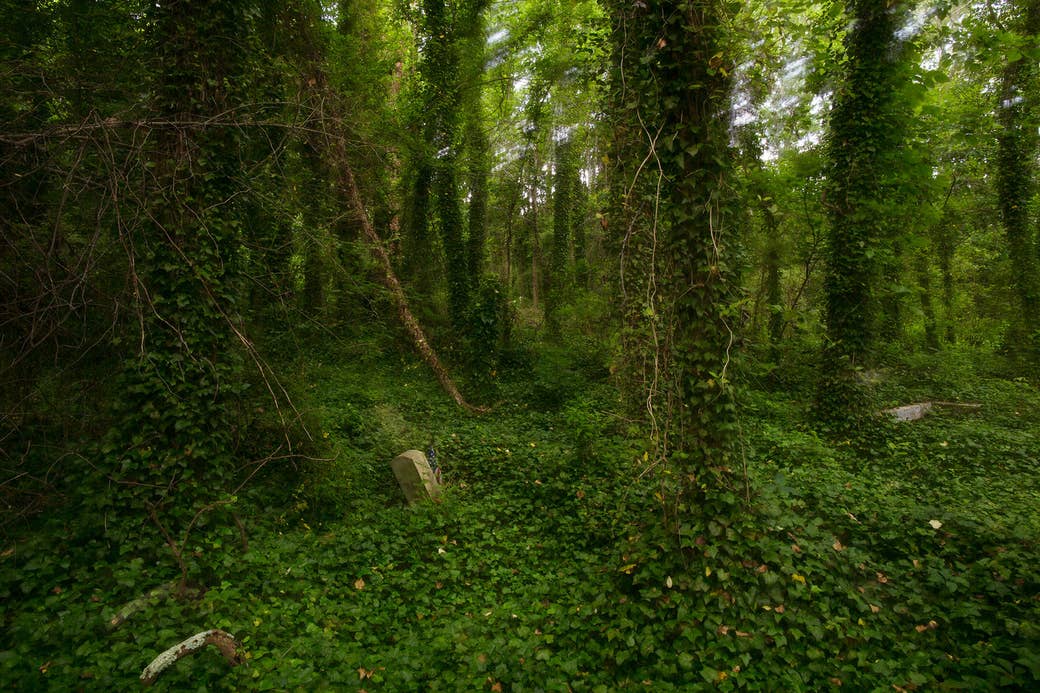
John Holmes is buried in a wildly overgrown section of an abandoned African-American cemetery in Virginia.
Born around 1880, he worked as a barber and married a tobacco factory worker, Martha, before his death from heart disease in 1938.
He now lies in a forgotten section of ground corrugated with sinking graves.
Someone, perhaps another volunteer working to clear the cemetery, has peeled away the foliage from his grave. Nature, time, or vandals have smashed the cement top, leaving large slabs around a jagged hole.
Holmes is just one of thousands of people—perhaps as many as 50,000—interred at East End and neighboring Evergreen cemeteries in Richmond.
As black people, John and Martha Holmes were treated as second-class citizens in the Jim Crow South and, accordingly, their lives were not well documented by authoritative documents of the day.
That makes their headstones vital texts in an outdoor archive.
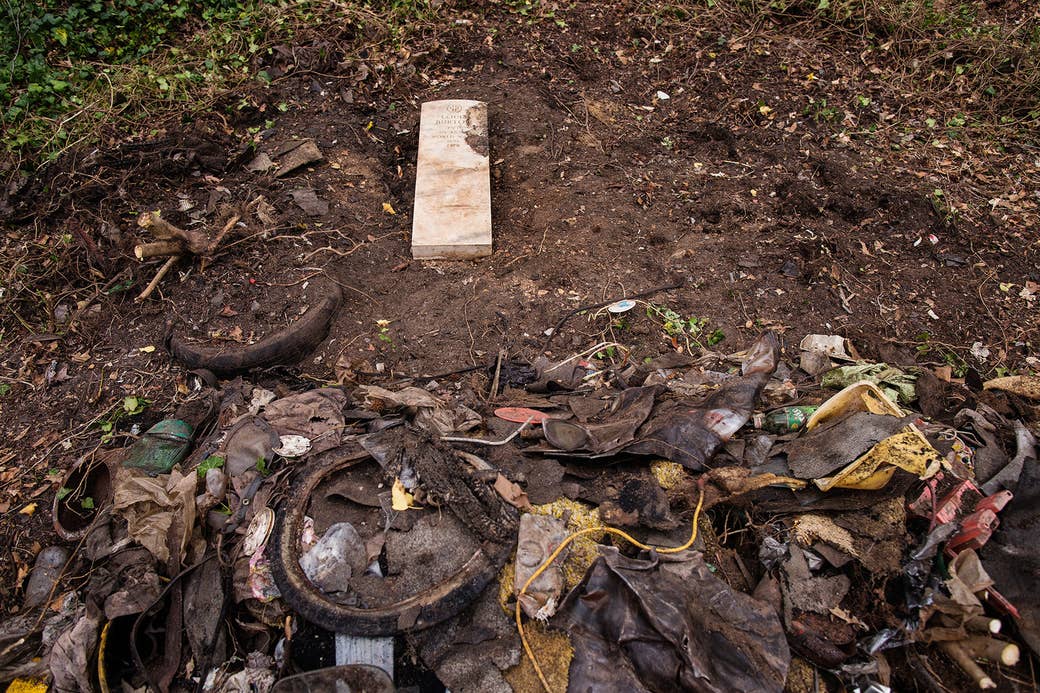
The two cemeteries, which cover some 76 acres, were established at the end of the 19th century (Evergreen in 1891, East End in 1897), when white people barred black people from being interred in the same burial grounds.
Neither cemetery has a perpetual care fund to maintain the graves, because such funds weren’t required when they opened. Instead, families cleaned their own plots or paid others to. This worked out just fine until Jim Crow assaults on black wealth and agency battered the community, pulled it apart, and dispersed it. Most internments there ceased by the early 1980s.
Both cemeteries are now in desperate need of care. Veritable forests have grown where beautifully tended memorial parks once stood.
For several years, volunteers have done what they can to hold back nature. They have cleared roughly three of East End’s 16 acres. A cleanup effort started at Evergreen in May. It is not the first.
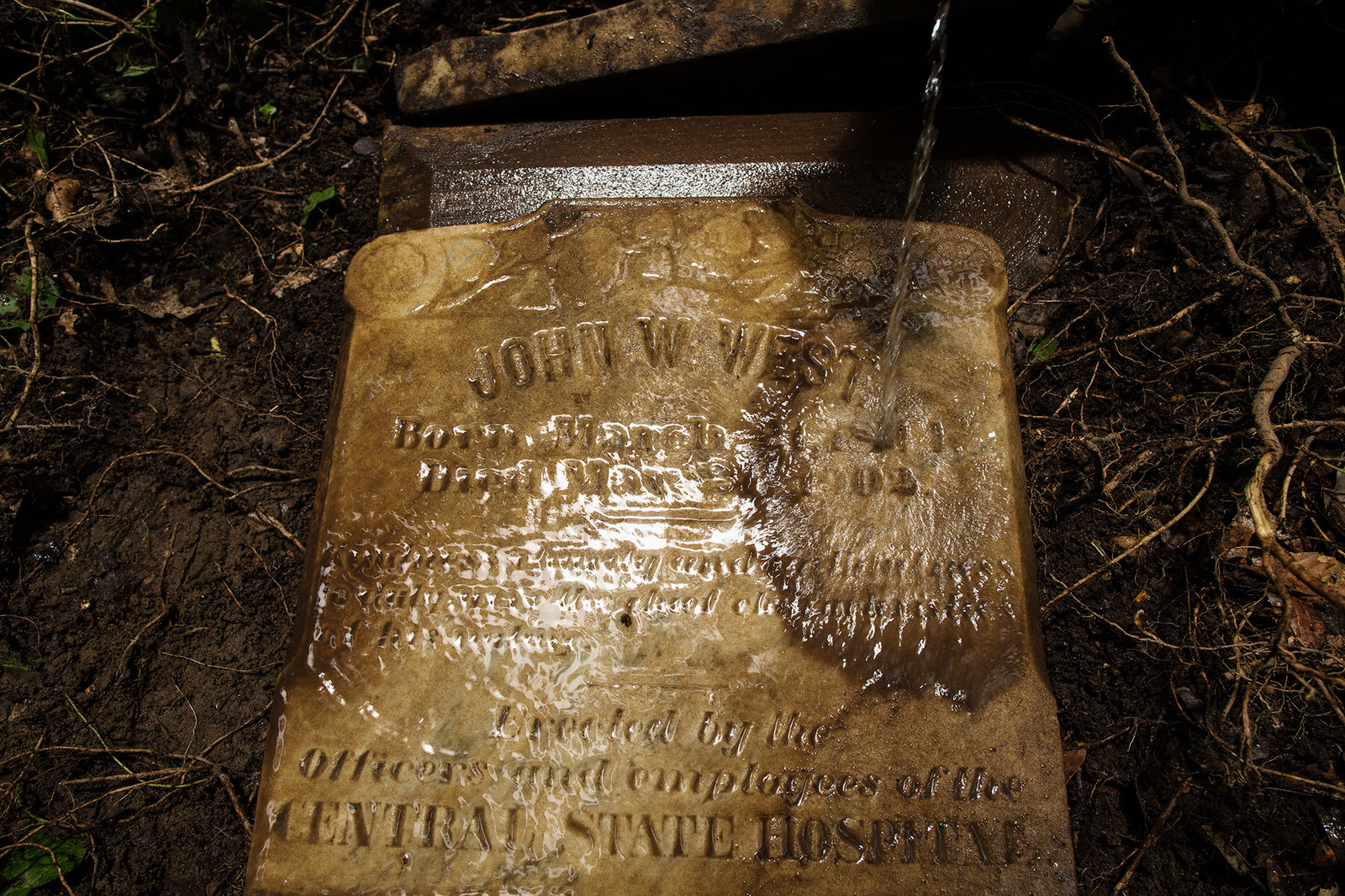
Local and state governments have studiously ignored the cemeteries for years. But at the end of June, the state of Virginia did something few would have dared to predict just six months ago: It pledged $400,000 to the restoration efforts, through the Virginia Outdoors Foundation, a public agency established by the state legislature.
Governor Terry McAuliffe gave his blessing to the grant at an event at East End on Wednesday.
The money isn’t nearly enough to clean and restore the cemeteries. In fact, the foundation’s executive director, Brett Glymph, called it “seed money.”
The symbolism of the grant, however, is huge. “This is a moral imperative,” Glymph said.
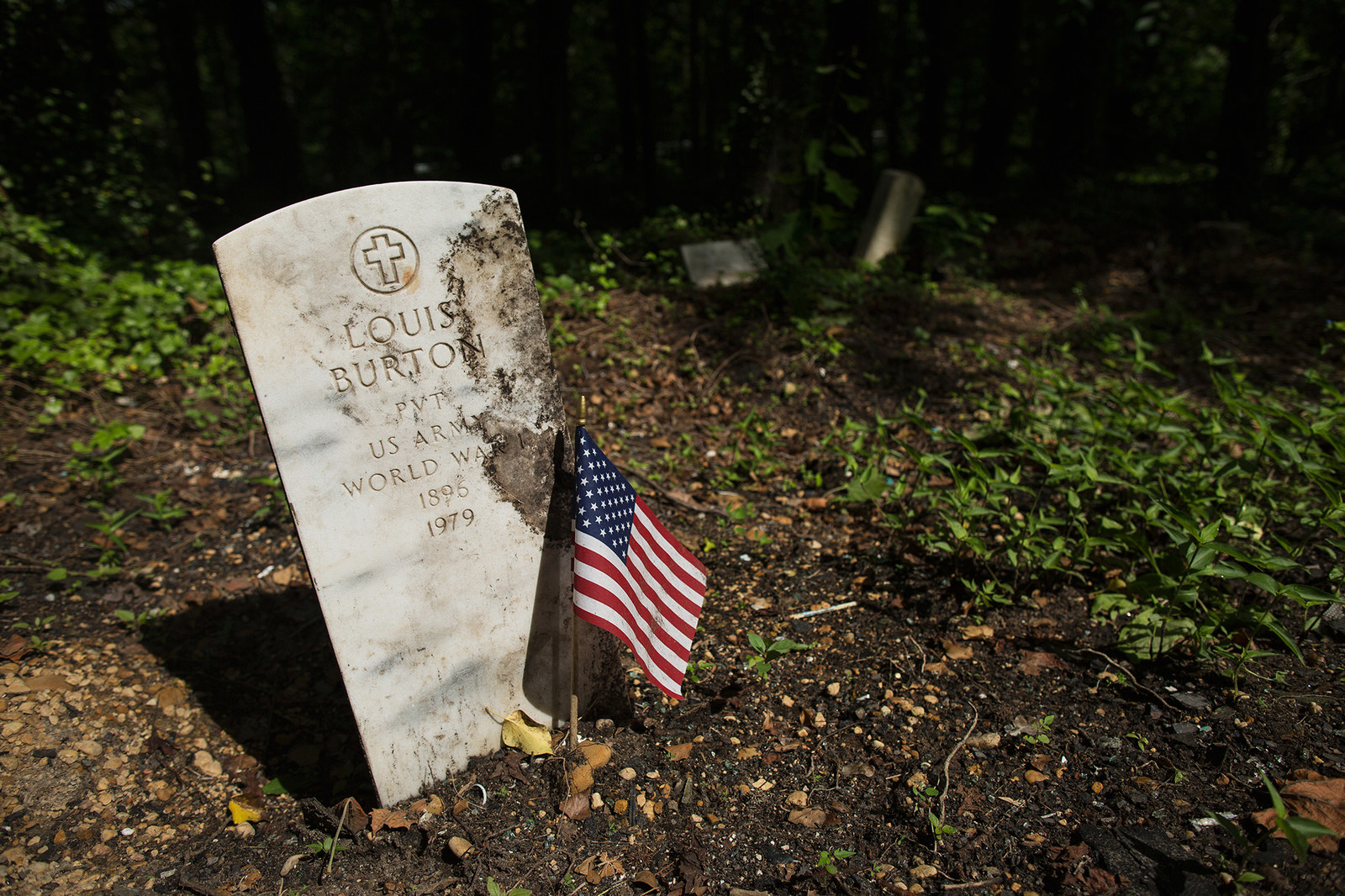
Virginia has long honored, even fetishized, the Confederacy. For close to 100 years, public funds have been paid to private groups to maintain Confederate grave sites— about three-quarters of a million dollars since 2007.
I asked the state how much it has allotted to the restoration of slave sites during a comparable period. (Many men and women who were born into slavery are interred at East End and Evergreen.) The answer was nothing, except for a $5,000 grant awarded to repair damage done to a slave homestead by a TV crew shooting a Discovery Channel show called Rebel Gold. It featured good ole boys digging up historic sites for lost Confederate riches. That’s some ugly irony right there.
The state does deserve some credit for turning over a parking lot to the City of Richmond in 2011, beneath which lay the "African Burial Ground" dating from the mid-18th century. Community groups like the Defenders for Freedom, Justice & Equality had waged a long battle to reclaim that historic land.
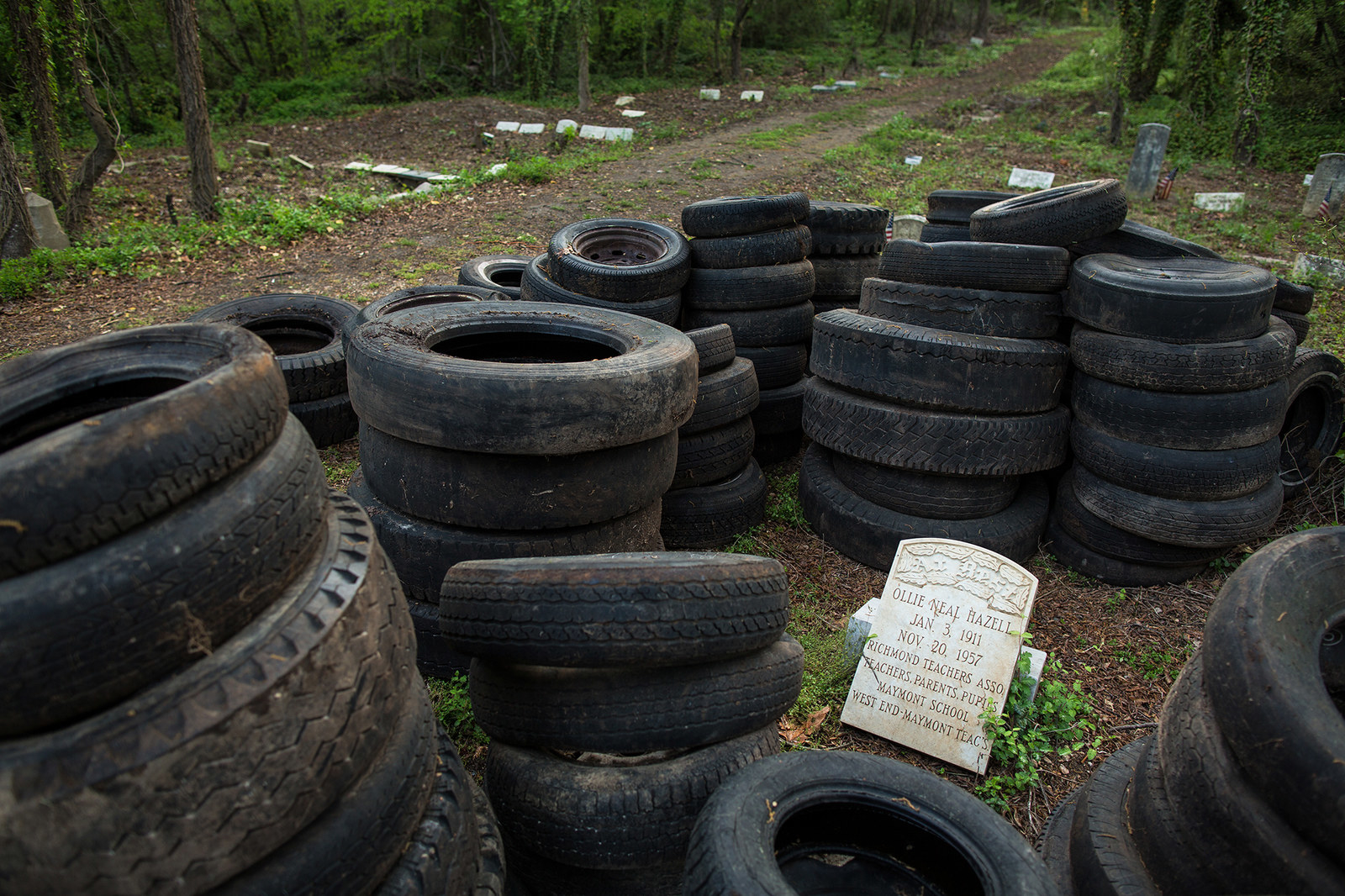
Archaeologists I reached out to could not name* another U.S. state that had invested in the rescue of a black cemetery with roots in slavery.
“There are no direct sources of government funding that directly address research or preservation of African American cemeteries,” said Dr. David Brown, co-director of the Fairfield Foundation and a Virginia archaeologist with more than 20 years of experience at the local and state level.
“There is a desire to help, but few mechanisms to facilitate preservation," he said.
Minutes after last week's announcement of state funding, a lawyer sidled up to the East End volunteers outside the state capitol. He offered his assistance, for a fee, and there were weak smiles all around.
No one will be getting a dollar for a long time. The foundation has a lot of work to do to determine the legal status of the private cemeteries before anyone busts out the checkbook.
Volunteers will be back out each weekend, wrenching vines and rooting for headstones, but at least they will now have knowledge that help is on the way.
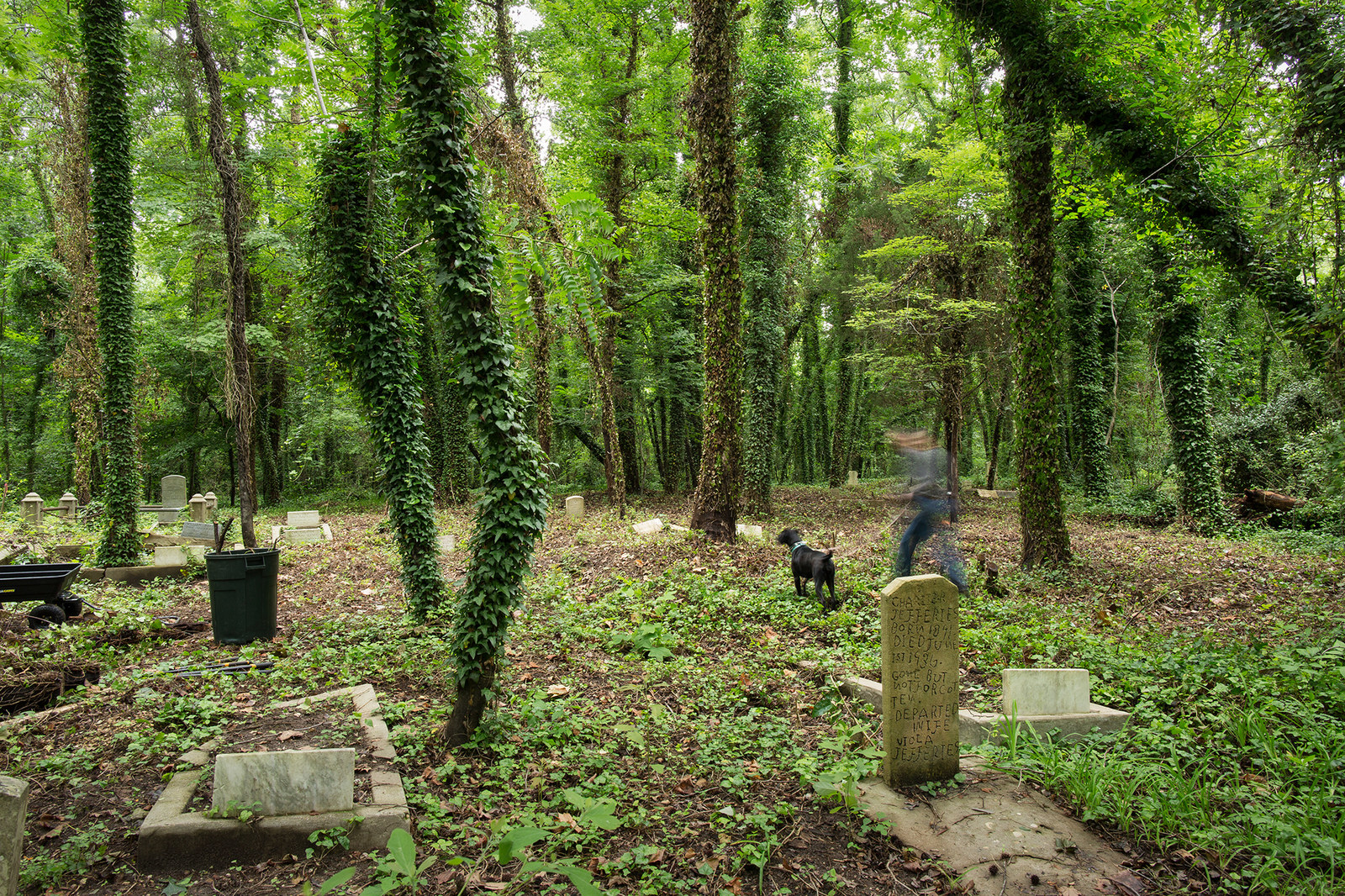
Brian Palmer is a photojournalist based in Richmond, Va. This story was produced with the support of the Economic Hardship Report Project.
*Correction:
In 2006, South Carolina provided $175,000 in funding to Columbia's Randolph Cemetery.

